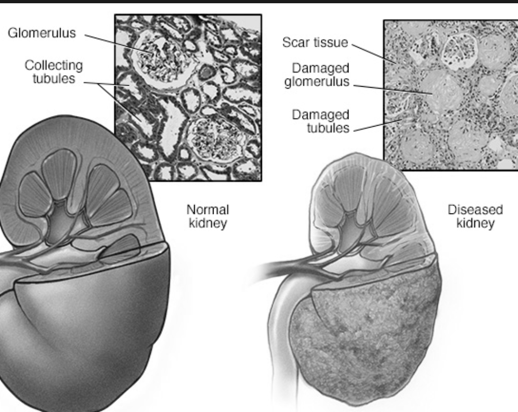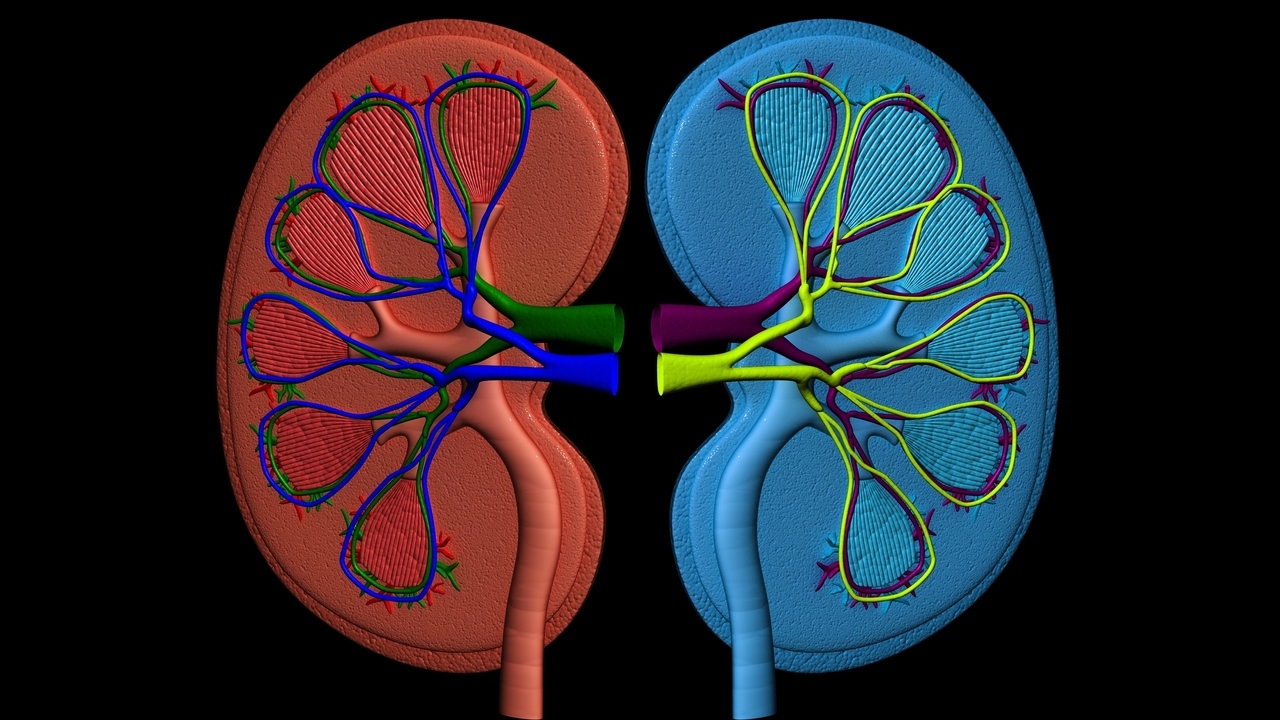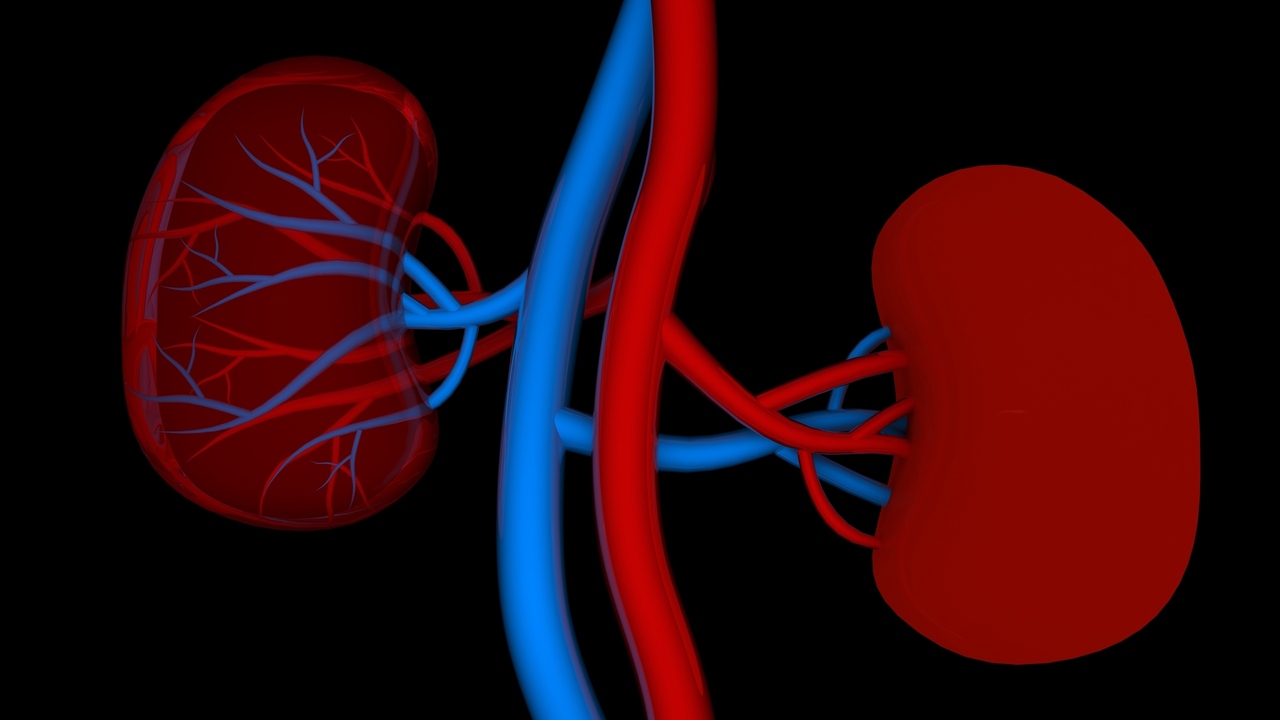The kidneys rid our bodies of all kinds of waste, balance fluids and are responsible for secreting hormones that stimulate red blood cell production and vitamin D (http://www.kidney.org/kidneydisease/howkidneyswrk.cfm).
The kidneys are important to many bodily functions and because there are two, they can be transplanted to those who need them without hurting the donor. Some kidney disorders are so serious that transplants are necessary. The most serious is kidney failure.
When kidney failure occurs, the harmful waste that the kidney is supposed to remove builds up in the body and creates toxins. Kidney failure can lead to serious problems in bone, brain, blood and heart health. However, kidney failure can be easily reversed with dialysis treatments or a transplant. Diabetes is one of the leading causes of kidney failure, so be sure to check with your doctor about the possibilities among diabetics (http://www.aafp.org/afp/20030615/2539ph.html).
If medicines and dialysis are not proper treatments for you, exercise, changes in diet, avoiding smoking and dehydration are all activities that can reverse the effects of kidney failure.
Chronic kidney disease on the other hand is a long-term process that has most likely affected your kidneys for a longer time than you realize. When the kidneys filter things out of your body, the tiny filters – called nephrons – can sometimes shut down due to the amount of waste traveling through them.
Consistently high blood pressure and blood sugar can lead to chronic kidney disease, also called chronic renal failure.
Kidney stones are deposits of salts and minerals that form in the kidneys and come out in the urine. Although they are painful, the kidney stones are short term. Drinking at least eight glasses of water is the best way to stop kidney stones, because changes in balances of water, salt and minerals in the body are the cause of kidney stones. Doctors can prescribe medicines to get rid of kidney stones, and after things in the body are balanced again, kidney stones generally disappear (http://www.webmd.com/kidney-stones/kidney-stones-topic-overview).






Add a CommentComments
There are no comments yet. Be the first one and get the conversation started!